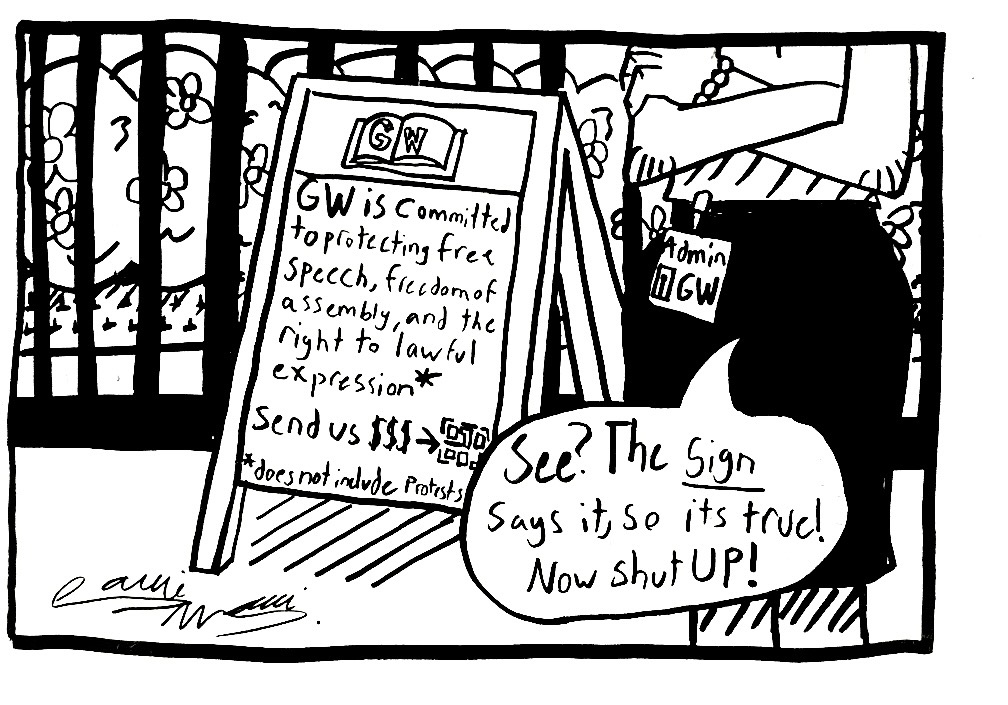The political climate of the United States today is oppressively reliant on superficial contents of limited media and seemingly random endorsements. Whether it be Charli XCX randomly tweeting “kamala IS brat” or the three-second clip of former President Donald Trump raising his fist after being grazed by a bullet, campaigns are exploiting such moments to build up their own perceptions of candidates. And Americans are feeding into it. It is time we stop relying on these candidate-centered impressions and start justifying our votes with policy research to produce a much more substantive and conscious electorate.
When discussing voting preferences and election patterns, many Americans tap into their pathos and harness morality to justify whether or not a candidate is worth their vote — or if the candidate even deserves the nomination. In the past month, I’ve heard classmates claim that Vice President Kamala Harris is politically inconsistent or that Trump’s policies hold some ground, but they can never vote for “him.” This is surely understandable, given that Trump faces blatant felony convictions and immense criticisms of racially divisive rhetoric alongside irrational reactions to election results. On the flip side, Harris carries a tumultuous prosecuting record featuring wrongful convictions on criminal charges and circumstances of complete legal turnarounds — a trend she carried into her political career with contrasting stances on topics like fracking.
The continuous scrutiny and discourse of such discussions undermine the bare policies and plans each party will enact in the event its candidate wins. Simply enough, it does not matter if Trump is convicted or if Harris’ political patterns are inconsistent — neither will necessarily impact the policy-based decisions they will implement as president as many of these policies are predetermined and most of the time fall in line with their political party. If these iterations do not form the administrative products of either of their presidencies, we should not allow them to influence our votes. Surely, the character which leads us nationally and represents the United States on the international stage is critical, but prioritizing the character of the candidate above the immense context of campaign promises and party policies is fallacious.
This extensive and constrained moral discourse is overrated and exhausting. It’s ineffective for the individual and the party. The individual voter being swayed by the character of a candidate, surface-level information and cultural forces forfeits the ability to develop an educated and independent political identity. Voters should process the election by keeping themselves well-informed on the variety of topics they are impassioned with, rooted in trusted sources, direct information and a panoramic view of the political scene instead of short viral moments.
Having one particular topic of interest should not limit one’s awareness or attention to other policies a party or candidate stands for. Obviously, both candidates stand behind and promote a plethora of policies, all of which have defined results and even implications for the policy one might care most about. Bringing attention to the vast political grounds on which a candidate stands allows you to fully understand what — not just who — this country will be structured on for the next four years.
Relying strictly on the “who” could leave voters ill-prepared for what may come when the next president takes office. The sweet, pathos-inducing language heard from candidates during campaigns will turn into action as they take office and begin to implement precomposed policies. Responsible voters should be aware of such actions and hold successful candidates responsible for fulfilling campaign promises. Such awareness after inauguration is only possible if that policy knowledge is already instilled.
One way to develop one’s understanding of the current political climate is to abandon the invalid notion that Republican and Democratic views are easily distinguishable and complete opposites. Some policies remain similar for both candidates but are founded on different premises. Take immigration. Sure, Harris, along with the Democratic Party, has more lenient tendencies on the subject than Trump’s right, but the policies revolving around the situation, especially at the southern border, have become homogeneous.
In her speech to the Democratic National Convention, Harris claimed she would sign a bipartisan deal involving $650 million for border wall construction, a project introduced by Trump. Her famous “do not come“ phrase directed to immigrants further reinforces this theme. Trump as president put his words to action by implementing travel bans. Both candidates recognize the severity of this issue, and more importantly, their policies reflect it. Voters should take time to recognize the differences beyond expressed sentiments to understand the processes and plans that will unfold with either of their presidencies.
This could be done by researching party platforms on their informational sites, staying updated via trusted news sources or looking at how these candidates’ perceptions and actions transformed over time. This way, we can curate a political identity that isn’t reliant on a celebrity’s endorsement or viral TikToks.
Instead, we can support a party because the substance of their policies along with their delivery process justifies our vote thus allowing us to be conscious of the effects of our casted ballot and develop a relationship with a party whose policies represent our long-standing ideals, regardless of the candidate.
James Pomian, a junior majoring in political science, is an opinions writer.





